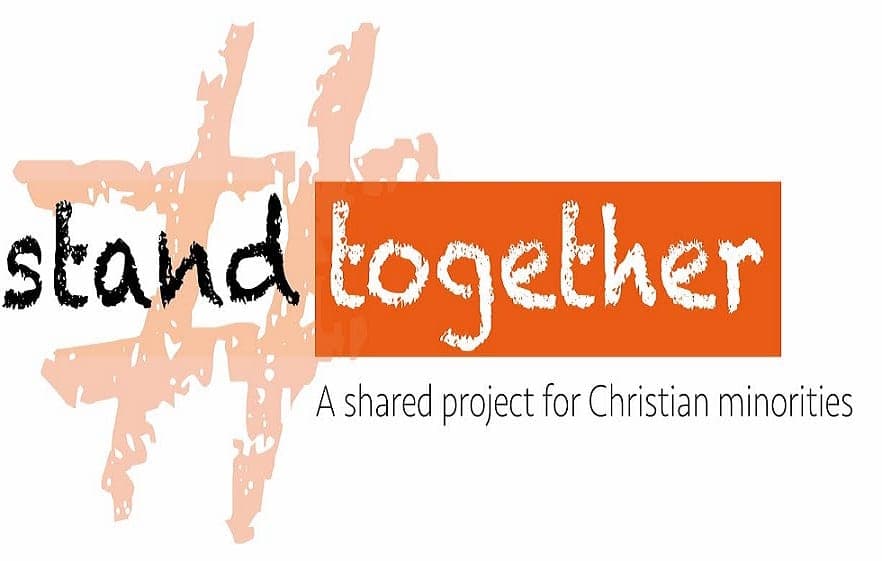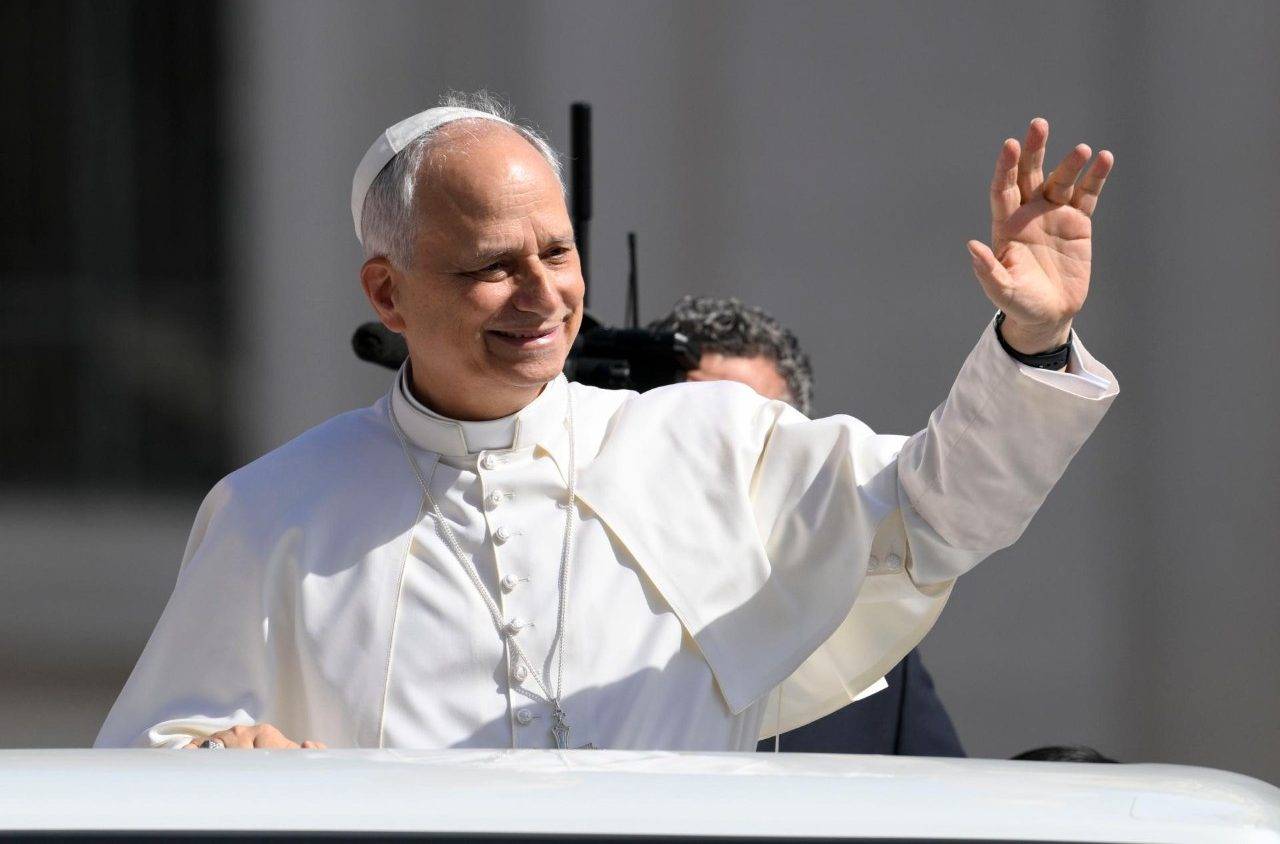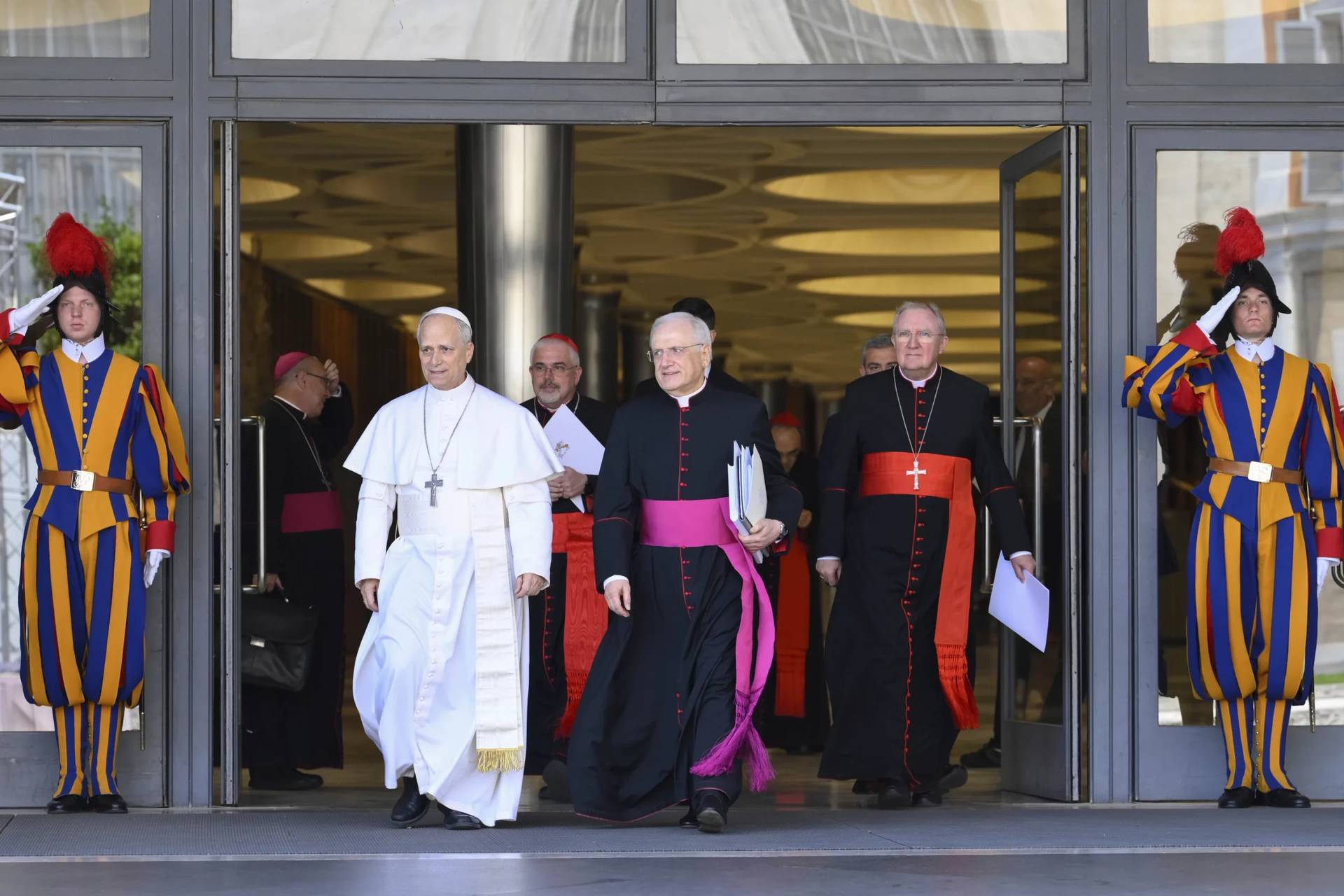ROME – Once in a while, perhaps, transformative social movements are born fully formed, like Athena from the head of Zeus. More often, however, they come together bit by bit, without any central planning, as one small piece intersects with another until critical mass is achieved.
Rome during the past week saw a couple such pieces emerge in the budding push to do something about anti-Christian persecution around the world.
For one thing, a delegation of Hungarian diplomats and politicians was in town for meetings with Vatican officials, including their Deputy State Secretary for Assisting Persecuted Christians – making Hungary to date the only country in the world to have a position in their foreign ministry specifically devoted to anti-Christian persecution. The new effort was announced in September, and the Hungarians wanted to drum up Vatican support.
The group was led by Bence Rétvári, Hungary’s Vice Minister for Human Capacities, and had meetings with Archbishop Paul Gallagher, the Vatican’s Secretary for Relations with States; Cardinal Leonardo Sandri, Prefect of the Congregation for Eastern Churches; and Archbishop Silvano Tomasi, former Permanent Observer of the Holy See to the United Nations in Geneva.
Crux spoke to Rétvári on Wednesday, and I asked him to explain why Hungary is doing something no other state in the world is doing.
“We can put that question the other way around,” he said. “Christians are the most persecuted religious group in the world, so why are there no other governments that want to help them?”
“Christians [in the Middle East] are discriminated against doubly, first because they are hit by the war, and second because they are Christians,” Rétvári said.
“Religious freedom as guaranteed in international treaties is not always respected, and in some cases people face death for refusing to abandon their religion. There are communities that have existed for more than 2,000 years that are facing extinction.
“We’re like a brother who sees that his sister’s house is on fire,” he said, “and we need to go put out the fire and then help rebuild the house.”
Rétvári said the initiative has three immediate priorities:
- To use Hungary’s status as a member state of international bodies such as the United Nations, the European Union and the International Criminal Court to pursue criminal indictments of perpetrators of anti-Christian violence and acts of genocide.
- To raise awareness about the global dimensions of anti-Christian persecution.
- To build projects such as hospitals and schools in the regions affected by the violence.
Hungary also plans to host an annual international conference, he said, and to issue annual reports on anti-Christian hostility.
Rétvári acknowledged that he feels a personal stake in the issue.
“As a Christian, I think everyone is touched by seeing other Christians in trouble,” he said. “In the Western world, we Christians have become too comfortable. We often can’t even find the time to go to Mass on Sunday, but there are others who risk their lives for their religion.”
Hungary may be alone so far in terms of having a specific department for anti-Christian persecution, but its decision reflects mounting awareness among governments generally that Christians need help, right now especially in the Middle East.
As it happens, we met Rétvári and his team at the offices of Rome Reports, a TV news agency based in the Eternal City that’s launching a new project in collaboration with Communion and Liberation, one of the new movements in the Catholic Church, as well as a foundation called ISCOM and an American institute called the Religious Freedom and Business Foundation, to give voice to persecuted Christians using social media.
The name of the project is #StandTogether, and it features a new web site that aims to collect reports about anti-Christian persecution from various news agencies and sources.
The project was presented at a briefing in Rome on Thursday morning, the highlight of which was a gripping overview of the devastation of Iraqi Christianity at the hands of the Islamic State delivered by a Rome-based Chaldean priest named Father Rebwar Basa.
Among other things, Basa told the stories of several Iraqi priests who’ve been killed – chillingly, he would just casually toss in, “he was at my ordination,” or “he was my parish priest as a kid,” providing a reminder of how profoundly personal these horrors are for the country’s Christian population.
(Basa was forceful, by the way in making the point that work towards sainthood for Father Jacques Hamel, the priest slain in France by men professing loyalty to the Islamic State, is already underway, and he wonders when these murdered Iraqi priests will likewise be beatified and canonized.)
Antonio Olivié, the director general of Rome Reports, stressed that the #StandTogether initiative is designed to be “ecumenical,” open to new partnerships and ways of working together, and not intended to replace what’s already being done by other news agencies and organizations devoted to raising awareness.
Granted, neither the Hungarian initiative nor #StandTogether by itself is probably a game-changer.
Meaning no disrespect, but Hungary is not quite a major global power, and it’s probably doing this in part for domestic political reasons as much as purely humanitarian motives. (Rétvári jokingly granted the point, telling us, “Well, we’re not ashamed if our policies are popular with our voters!”)
As for #StandTogether, Olivié is the first to admit that it’s no more than a “small contribution” and one that isn’t being born with the deepest of pockets.
Still, change has to start someplace, and at least these two developments from the past week suggest that something is stirring. That alone, according to what Basa told us on Thursday, is enough to give Christians in the firing line today something resembling hope.














